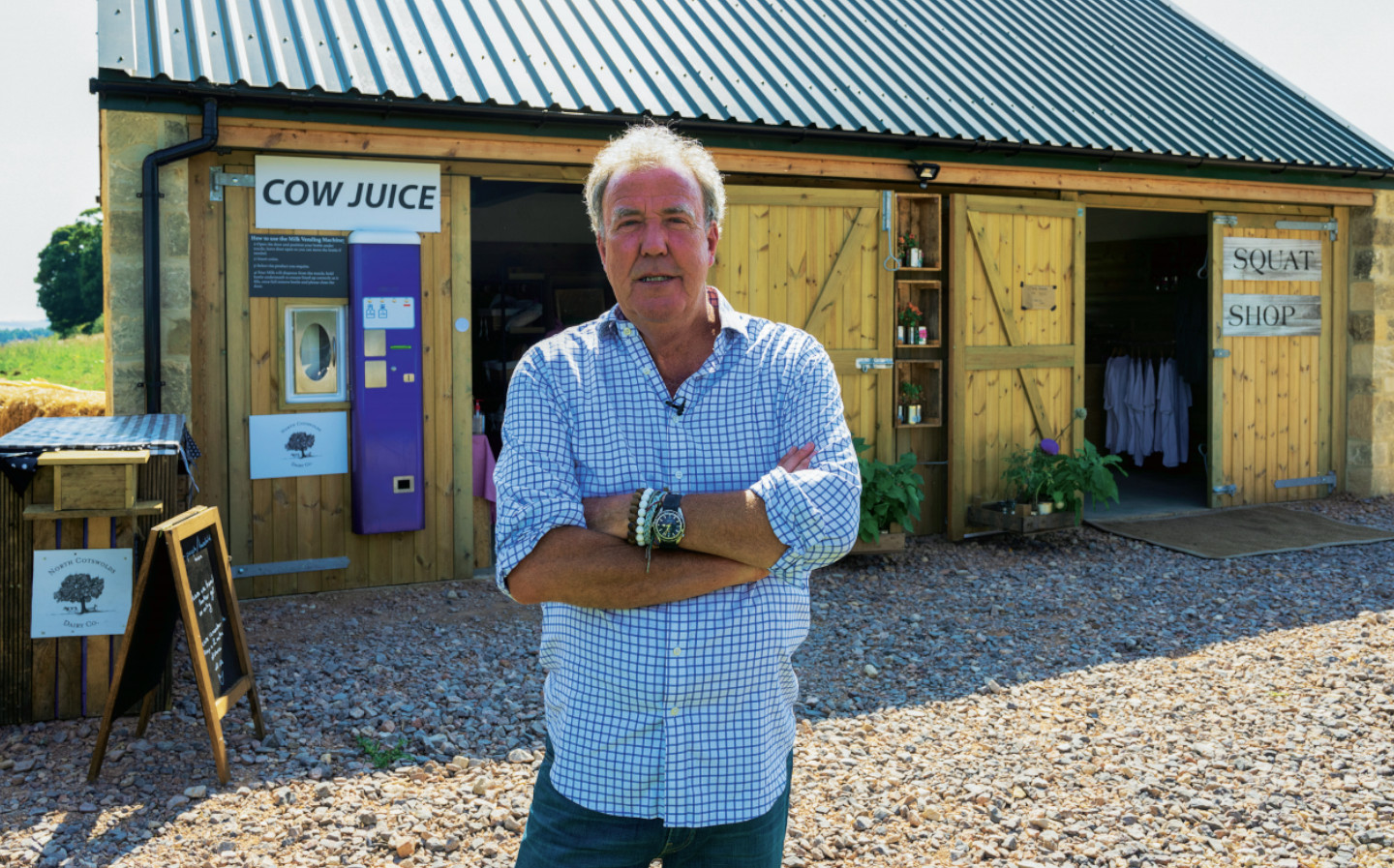Jeremy Clarkson's farm is costing him a fortune but his farm shop is turning into a success
With a little help from local artisans
JEREMY Clarkson has been writing farming columns for the Sunday Times for nearly five months now, on and off, and there are a few lessons that we’ve learnt in that time. Firstly, he doesn’t like how many rules and regulations the government forces upon farmers. Secondly, that his farm is largely unsuitable for growing anything that isn’t corn or rape. Thirdly, that sheep are hooligans. Perhaps the most important thing that we now understand, though, is that Clarkson definitely didn’t get into farming for the money.
Of course, there have been a number of one-time costs: a Lamborghini tractor was an early purchase, barns were built and water pipes were divined. However, running costs mean that neither Clarkson nor any other farmers stand much of a chance of making money in the current economy.
Maintenance includes thinning out forests, for example. And then there’s the planting and picking. Most people aren’t willing to pay more than a quid for a loaf of bread but for a farmer, its production involves buying the seeds, preparing the soil, planting the seeds, taking care of the seeds with pesticides and fertiliser, renting and then using a combine harvester to, you know, harvest the wheat, before using a fan heater to dry it out. And that’s before it even gets to the baker. “Put simply,” says Clarkson in today’s Sunday Times Magazine, “it costs more to make your bread than you’re prepared to pay.”
The same goes for livestock, namely trout, hens and lambs. Regardless of whether or not he keeps them to fatten them up before selling them, or sells them now, where each one isn’t as valuable but doesn’t require the expenditure of plumping up, he loses the same amount of money.
Financial conundrums like these are why an increasing number of farmers are opting to flog their wares in self-owned farm shops. It cuts out the middleman, meaning that all the money that is made through a farmer’s product goes to the farmer themselves. “And you, the customer, can buy your lunch from the field in which it was grown. People seem to like that.”
Clarkson, therefore, went about creating a lovely Italian-esque stone barn, with the intention of selling what was in season. That’s all well and good when the season means fresh fruit and veg are in abundance, but not so much when the “only thing that was in season were the potatoes.” Especially not when coronavirus forced the closure of Clarkson’s farm shop for a period of time long enough for the aforementioned potatoes to rot.
And when he reopened, there was a similar scramble for produce. “The apples were tiny sour bullets, the wasabi was string, the vegetables were barely out of the ground and my water-bottling plant was still just a pipe dream. Actually, scratch that: it was only a pipe.”
Furthermore, it’s hard to sell a lot of what Clarkson produces (things like corn and rape) without a factory to turn them into something. He had success selling his honey (made by his quarter-million strong fleet of bees), but the animals themselves do the hard work. His “cow juice” machine is doing well but he’s going to have to sell tens of thousands of pints of milk to even break even on the machine.
There’s a sparkling silver lining, though. Since the shop opened, Clarkson has been approached by a number of local artisan producers who want to sell their things in his shop. As well as selling his own products, his shelves are now “filling up with all sorts of tasty comestibles”. There are women who make sausage rolls and cakes, a man with world-beating tomato juice, and even a Britpop drummer (who also features in this weekend’s Sunday Times Magazine) flogging cheese.
With this influx of artisan producers, Clarkson has had to hire someone to work in the shop day to day, and he reckons that he now only loses £500 per month on the project, which he seems to be pretty chuffed about.
To read Clarkson’s full column, head to The Sunday Times website or grab a copy of this weekend’s Sunday Times Magazine.
Tweet to @ST_Driving Follow @ST_Driving





